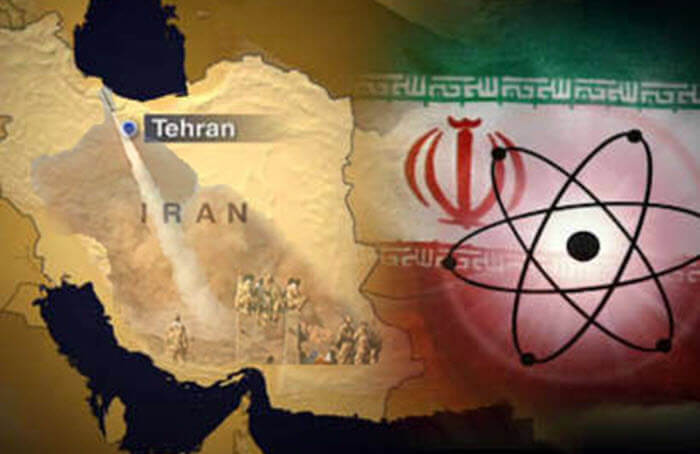New reports from American, Israeli, and European officials Wednesday revealed that President Joe Biden's senior Middle East adviser, Brett McGurk, took a trip this month for talks with Omani officials on possible diplomatic outreach to the Islamic Republic of Iran regarding its nuclear program.
Following the trip to Saudi Arabia with United States National Security Adviser Jake Sullivan and a visit to Israel to brief Prime Minister Netanyahu about the US talks in Riyadh, McGurk traveled to Muscat - which was kept private by the US and Oman.
Officials said the main issue addressed was a new diplomatic effort over the Islamic Republic's nuclear program with Omani mediation. Speaking to Axios, a senior Israeli official said that the Omanis are "holding proximity talks between the US and Iran., using an agreed-upon third party without a face-to-face meeting.
Senior Israeli officials also stated that the Biden White House is exploring through the Omani government whether Tehran is open to taking steps to put limits on its nuclear program and de-escalate regional tensions in the Middle East.
"The Americans want a time out," a senior Israeli official told Axios.
The White House National Security Council (NSC) pushed back on the claims of the administration's push for an interim dealing, stating that there is no "US discussion of an interim deal and no discussion of sanctions relief, or closing safeguards cases." The NSC spokesperson did not provide any revelations on regional diplomacy, noting that Iran was an aspect of it.
The "US is working with the Omanis on the Iranian issue," a senior European diplomat told Axios.
"This trip is not about the JCPOA. It is about exploring whether diplomacy with the Islamic Republic over its nuclear program is possible," said Jason M. Brodsky, Policy Director of United Against Nuclear Iran (UANI).
In Jerusalem, Israeli officials are concerned about the administration's push for an interim agreement with Tehran, with officials fearing that such an agreement would provide Tehran with economic relief and the ability to obtain a nuclear weapon. On Tuesday, new reports revealed that South Korea and Washington are discussing ways to release $7 billion in Islamic Republic funds held in South Korea.
On that same day, the Islamic Republic reached an agreement with the International Atomic Energy Agency (IAEA) on closing an investigation over the Marivan undeclared nuclear site in the southern city of Isfahan, Iran, addressed by then-Israeli Prime Minister Benjamin (Bibi) Netanyahu in 2019, which noted the traces of uranium particles in the atomic facility.
Satellite imagery of the nuclear site showed Iran conducting rounds of demolition activity in the area between July 2019 and December 2020, raising suspicions that the ayatollahs were trying to hide their atomic activity.
"We have full confidence in the IAEA and in Director General Grossi, and we look forward to the IAEA's reports in the coming days," a State Department spokesperson told reporters." Previous investigations by the IAEA discovered that Islamic Republic scientists enriched uranium to an 83.7% level, which is needed to create an atomic bomb.
In 2015, Oman was a mediator between the Obama administration and Islamic Republic officials.
Following the Trump administration's historical normalization deal between Israel, the United Arab Emirates (UAE), Bahrain, Sudan, and Morocco, Israeli Prime Minister Netanyahu and US officials approached then-Sultan Qaboos Bin Said, who was friendly with the Jewish State and was close to joining the Abraham Accords.
Since his death, Oman has criminalized ties with Israel while making overtures to Iran.
Brodsky told The Foreign Desk that he remained "skeptical that a sustainable diplomatic outcome is possible because of a lack of bipartisan consensus on the nuclear file as well as Iran's non-nuclear behavior."
According to Brodsky, the lack of bipartisan consensus "necessitates a deterrence strategy focused on denying the Islamic Republic resources, reinforcing red lines on its nuclear program in word and deed, as well as diplomatic isolation."
Related Story: Biden Administration Does Not Deny Claims of Possible Interim Deal with Iran










